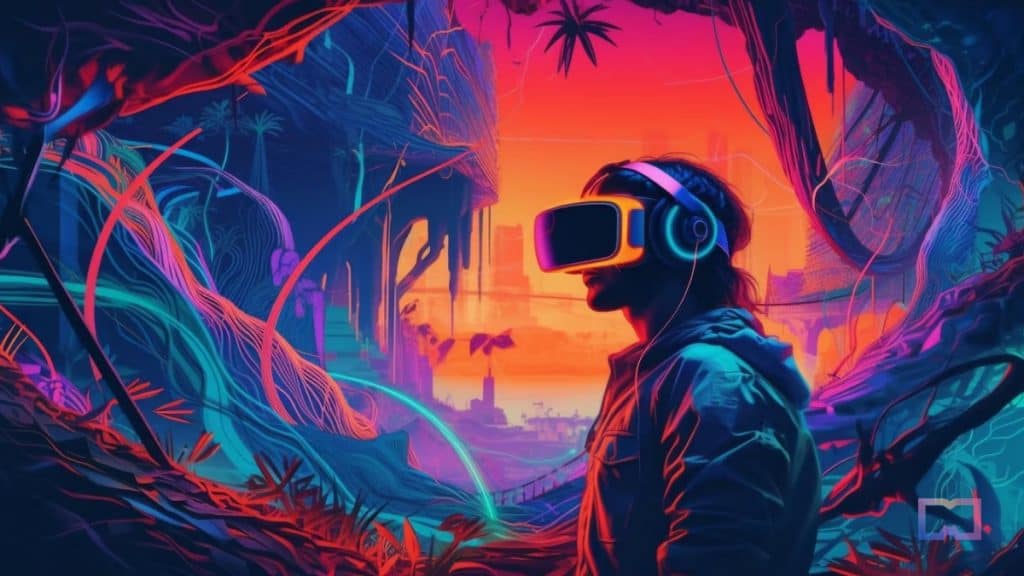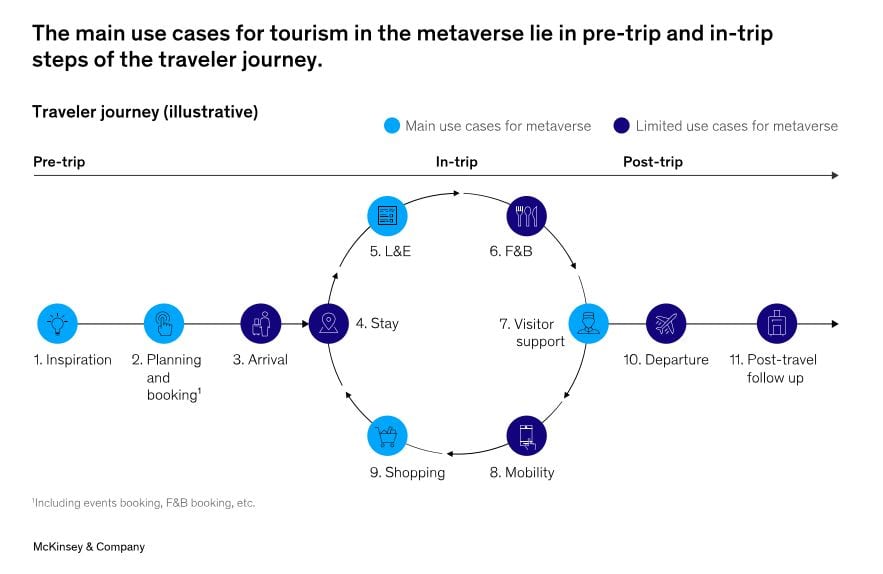
The metaverse powered by VR/AR expertise has the sturdy potential to reshape our actuality, together with journey. In line with analysis by McKinsey, the journey business might earn greater than $20 billion by 2030 from the immersive and fascinating choices of the metaverse.
“Think about a future the place your journey selections are unconstrained by location. The place you possibly can be a part of your pals within the entrance row at a live performance by your favourite star, however the crowd is 300 million folks, your pals are on the midway world wide and all of it occurs on the Nice Pyramid of Giza. Later, you will store on the digital souk and take a digital Nile cruise, earlier than teleporting dwelling straight away,”
McKinsey imagined journeys powered by the metaverse.
Early tendencies in metaverse functions have highlighted the probabilities of expertise which are redefining exploration. For instance, the French start-up Histovery used augmented actuality to create an immersive exhibition on the historical past of Notre Dame de Paris. In the meantime, MGM Resorts Worldwide has turned to digital actuality to enhance employees coaching and onboarding. Digital platforms resembling ZEPETO World and BCB Group’s metaverse metropolis present digital journey experiences to world places, fostering edutainment and retail alternatives. Moreover, the Royal Fee of Saudi Arabia for AlUla has positioned the traditional metropolis of Hegra within the metaverse, permitting digital vacationers to discover its wonders.
The report highlights that the first use instances for the metaverse are in recreation and leisure, inspiration and planning, customer help, and buying and reservations. These areas have important potential for leveraging the metaverse to enhance the traveler expertise.

McKinsey argued that forward-thinking tourism business gamers might place themselves on the forefront of disruption. The methods of early metaverse customers fall into two classes: digital occasion facilities and recreations of iconic landmarks.
Digital occasion facilities have already demonstrated their potential, attracting enterprise gatherings and leisure with ticket gross sales, attendance charges and retail alternatives. Alternatively, Prolonged Actuality (XR) landmarks present immersive areas the place guests can discover, socialize, store and be taught whereas studying about lesser-known locations.
After overcoming challenges resembling interoperability, knowledge safety, and machine availability, journey firms can plan vacationers’ potential journeys and collaborate with metaverse and retail platforms, communication channels, and the creators. McKinsey wrote that by embracing the metaverse early on, journey firms might acquire partnerships and experiences and place themselves for fulfillment in the way forward for journey.
In January, the Reserving.com examine surveyed greater than 24,000 vacationers from 32 international locations, revealing that 43% plan to make use of digital actuality as journey inspiration in 2023. China (75%), Thailand (72 %) and India (70%) lead in digital actuality. adoption. Moreover, VR experiences can affect vacation spot selections, with 46% of respondents being extra keen to go to beforehand ignored locations after exploring them just about. Whereas 35% specific curiosity in multi-day VR journeys, 60% nonetheless discover conventional journeys extra satisfying.
Study extra:
